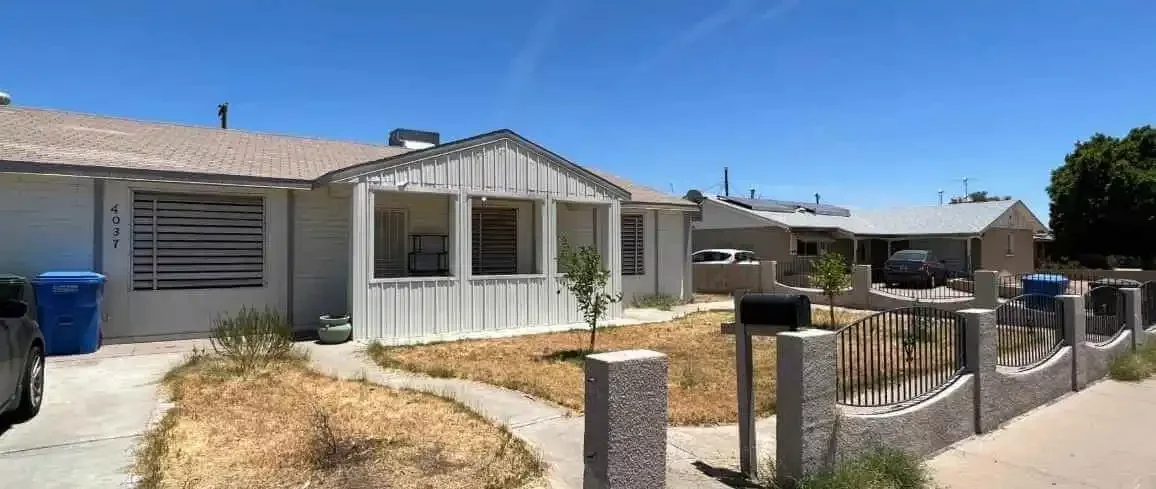Guide for Selling a House as Is begins with understanding the dynamics of the process. This approach typically attracts cash buyers or real estate investors who are prepared to purchase properties needing repairs. By offering your home in its current condition, you can save on expenses related to renovations, inspections, and staging. However, you need to set realistic expectations about the selling price, as buyers may account for the cost of future repairs when making their offers. That’s why it’s essential to follow a well-informed Guide for Selling a House as Is to navigate the process confidently and maximize your outcome.
In Phoenix, selling as-is can be advantageous, especially in a competitive market where buyers are willing to invest in fixer-uppers. It’s essential to highlight the strengths of your property, such as its location, size, or potential. Disclosing any known issues upfront is not only ethically sound but also helps build trust with potential buyers. This step can lead to a smoother transaction and minimize surprises during the negotiation process.
Additionally, marketing your property effectively is key. Include clear and honest descriptions in your listings, accompanied by photographs that showcase the home’s potential. Seeking advice from a real estate professional experienced in as-is sales can also help you navigate the process more confidently and maximize your sale’s success.

Guide for Selling a House as Is: What Does “As-Is” Mean?
Selling a house as-is means presenting it to buyers in its current state, without making any repairs or updates beforehand. It’s a straightforward approach that informs potential buyers that what they see is exactly what they’ll get. Whether the property is well-maintained or requires significant repairs, this method can be effective for sellers seeking a faster, less complicated transaction. In our Guide for Selling a House as Is, we explore how this strategy works, who it benefits, and what sellers should consider maximizing their outcome while minimizing stress.
For many sellers, opting for an “as-is” sale is driven by convenience, urgency, or financial constraints. Selling as-is eliminates the need to invest time and money into preparing the home for the market, which is especially beneficial if you need to sell quickly due to relocation, inheritance, foreclosure, or other personal circumstances. It’s also an appealing choice for sellers who want to avoid the stress and complexity of traditional home-selling processes.
However, it’s important to acknowledge the trade-offs associated with as-is sales. While it saves time and effort, it often leads to lower offers as buyers account for repair costs in their bids. Additionally, some buyers and lenders may shy away from properties needing significant work, narrowing the pool of potential offers.
To successfully sell a house as-is, transparency is key. Disclosing known issues upfront fosters trust and reduces surprises during negotiations. Crafting a compelling listing that highlights the property’s strengths—such as location, size, or unique features—can help attract buyers. Consulting with an experienced real estate agent can provide valuable insights and strategies, such as pricing the property competitively and targeting cash buyers or investors who specialize in fixer-uppers.
Ultimately, selling a house as-is is about balancing the need for a quick and hassle-free sale with the reality of potentially lower offers and fewer buyer options. Carefully weighing the pros and cons will help you determine if this approach aligns with your goals and circumstances.
Common Reasons: Guide for Selling a House as Is
Selling a house as is often appeals to individuals facing unique circumstances that make the traditional home-selling process less viable. This guide for selling a house as is explores the motivations behind this approach, offering insights into why homeowners choose to bypass repairs and list their property in its current condition. Whether driven by urgency, financial constraints, or the desire for a simplified transaction, understanding these reasons can help sellers make informed decisions and navigate the process with confidence
1. Urgency
When time is of the essence, selling a house as-is can be a practical solution. If you’re in a situation where you need to sell your house quickly—perhaps due to an unforeseen financial emergency or a time-sensitive opportunity, you may not have the luxury of months to prepare your home for sale. Repairs, inspections, and showings can all be time-consuming, and in urgent cases, homeowners often prioritize speed over profits. This guide for selling a house as is offers insights into how to streamline the process, minimize stress, and attract buyers who are ready to purchase properties in their current condition
2. Relocation
Job transfers, changes in family dynamics, or health-related relocations can necessitate a swift move. If you’re relocating across the country—or even internationally, you may find it impractical or costly to oversee repairs or renovations remotely. That’s where a comprehensive Guide for Selling a House as Is becomes invaluable: it helps you understand how to expedite the process, minimize distractions, and move forward with confidence, even when time and resources are limited
3. Inheritance
Inheriting a property can sometimes feel like a mixed blessing. If the property requires extensive repairs, or if it’s located far from your primary residence, managing it might not be feasible. By selling the house as-is, you can avoid the complications and expenses associated with maintaining or renovating an inherited property.
4. Foreclosure
Homeowners facing foreclosure often view as-is sales as a last-resort option to salvage some financial stability. Selling the house quickly before it goes back to the bank can help mitigate long-term credit damage. This approach offers a way to settle debts and potentially move toward a fresh financial start.
5. Simplicity
Traditional home sales can involve a range of stress-inducing steps, from preparing a house for market to negotiating with potential buyers. Some sellers simply want to avoid the hassle. If your primary goal is to divest yourself of the property as smoothly as possible, an as-is sale simplifies the process. Without the need for extensive preparations, you save on both energy and emotional strain.
6. Avoiding Costs of Repairs
The cost of necessary repairs can be overwhelming, especially if your home has structural issues, outdated systems, or cosmetic damage. Selling as-is transfers the burden of these repairs to the buyer. This can be especially appealing if the cost of fixing the property would outweigh potential returns in the market.
7. Market Dynamics
In a competitive housing market, some sellers may find that even as-is properties attract considerable interest. For example, real estate investors and cash buyers often seek out fixer-uppers for their potential profit margins. If the market is in your favor, selling as-is may not significantly diminish buyer interest.
8. Emotional Relief
For some individuals, selling a home can provide emotional closure. If the house is tied to difficult memories or challenging life events, letting it go as-is can help you move forward without the additional burden of fixing it up.
The Trade-Offs of Selling “As-Is”
While selling as-is has its perks, it’s also important to consider the trade-offs. These include accepting potentially lower offers, navigating a smaller pool of buyers, and disclosing property issues upfront. Understanding these factors will help you make an informed decision that aligns with your priorities.
Ultimately, selling a house as-is is about balancing convenience, speed, and simplicity with the potential downsides. It’s an option that works best for homeowners who value efficiency and are willing to compromise on price in exchange for a smoother transaction.
Final Thoughts
Selling a house as-is can be an efficient and practical solution, especially for homeowners looking to avoid the hassle and expense of renovations. By carefully considering these additional factors, you can ensure a smoother process and make informed decisions that align with your circumstances and goals. Whether you prioritize speed, simplicity, or financial gain, tailoring your approach to the unique dynamics of your property and the market will ultimately maximize your chances of a successful sale.
Oak Street Properties buys houses “as-is” in Arizona, offering hassle-free solutions tailored to your unique situation. Their streamlined process ensures efficiency, and you can visit their testimonial page to read reviews and experiences shared by satisfied sellers. Whether you’re dealing with financial challenges or simply want to avoid the complexities of traditional home sales, Oak Street Properties provides reliable support for as-is transactions.

